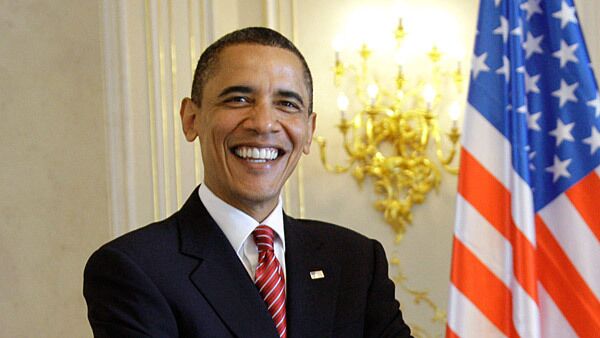The full text of the new 52-page National Security Strategy is now available on the White House web site. A week ago, President Barack Obama outlined the key elements of the strategy in a commencement address at the U.S. Military Academy at West Point.
For those expecting something sensational, the new strategy is bound to disappoint. Obama's strategy, like those before it, merely formalizes the policy his administration has been pursuing since he took office.
The new strategy is not a radical departure from Bush's National Security Strategy, but there are interesting nuances, for example the intention to "to build deeper and more effective partnerships with other key centers of influence-including China, India, and Russia, as well as increasingly influential nations such as Brazil, South Africa, and Indonesia."
The strategy also says the United States has "shifted focus to the G-20 as the premier forum for international economic cooperation," driving another nail in the G-8's coffin.
However, official concepts and strategies developed by the United States and other countries are not designed to cause a stir. In the United States, such documents are required every year by law, although this is not always enforced. George Bush released a national security strategy twice, in 2002 and 2006, and this is Obama's first strategy.
The National Security Strategy is intended mainly for foreign consumption and, to a lesser degree, as a reference document for the U.S. Congress and the administration to consult when drafting national security documents. It's just a piece of paper.
At least, that's the case under normal circumstances. But the situation in the United States is far from normal, and the new strategy is part of Obama's political battle to save the U.S. from the legacy of George W. Bush's presidency. This is why the 52-page strategy and the national security speeches delivered by President Obama, Secretary of State Clinton and National Security Adviser Jones are so important.
The thrust of Obama's West Point address was that Bush's strategy failed. But his Republican opponents, and nearly half of Americans, refuse to accept this and criticize Obama for not acting like Bush.
The most striking claim in the new strategy is that "effective cooperation will depend upon broad and bipartisan cooperation" and that its absence "places the United States at a strategic disadvantage."
"Throughout the Cold War, there remained a belief that America's political leaders shared common goals, even if they differed about how to reach them. In today's political environment, due to the actions of both parties that sense of common purpose is at times lacking in our national security dialogue," the strategy reads.
This is a sensational and wise statement. Just imagine what would have happened to Russia in the early 21st century if its foreign policy had not enjoyed near unanimous public support.
A foreign observer might pick up on one other interesting aspect of the strategy: Obama has urged Americans to revitalize their own economic, moral and innovative strength to continue to lead the world.
It takes courage to say this to a nation that does not question its role as the world's sole superpower. Obama has proven that he is strong president by clearly stating this to those Americans who don't want to hear it. Maybe the United States will succeed, provided Obama has managed to diagnose the disease in time. Or maybe the United States will fail as the Soviet Union did, when Mikhail Gorbachev was too late to tell Russians the shocking truth.
If the United States succeeds and remains the global leader, where will it lead the rest of the world? For all his courage, Obama might not be able to tell Americans that they don't need to be the global leader and face all the problems the job entails. On the other hand, he may sincerely believe that the United States must lead.
When the Chinese elite realized in the early 1990s that their country could play a bigger role in the world, they almost immediately concluded that they must not become another America, that they must not lead anyone anywhere. Taking the lead is suicide; everyone hates leaders. And now, when anyone in China attempts to adopt a new style, they are reprimanded for behaving like Americans.
This is also Obama's dilemma. Many countries, and especially Iran and North Korea, simply cannot take him at his word, or they fear that he will be replaced by a Bush-like president in the future.
America - as an alternative to the European system of the day - did not initially plan to lead the world. In the beginning, it sincerely believed that its mission was to be a moral leader, to lead by example.
The idea of literal leadership - including militarily leadership - advocated by Obama's Republican opponents, appeared only after WWII. The United States was essentially dragged into two world wars. The world asked it for help, and so Americans came to believe that the world will always need a strong America.
This is why Obama's promotion of economic, moral and innovative strength deserves respect: There is not a word about military strength.
Obama is a president one can work with. His opponents challenge him at their peril, because so far Obama has made very few mistakes, at least in his foreign policy. His new National Security Strategy is further proof of this.
The opinions expressed in this article are the author's and do not necessarily represent those of RIA Novosti.
MOSCOW (RIA Novosti political commentator Dmitry Kosyrev)

